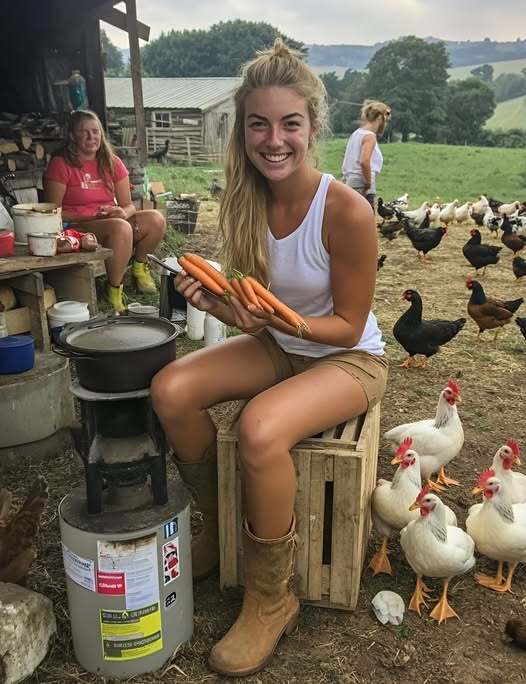
I grew up on a sweet potato farm about ten miles outside of town—where mornings start before the sun, and “vacation” usually means the county fair. My parents have dirt under their nails and more grit than anyone I know. I always thought that was enough for people to respect us.
Then I got accepted into a scholarship program at a private high school in the city. It was supposed to be my big break. But on my first day, I walked into homeroom wearing jeans that still smelled faintly of the barn, and a girl with a perfect ponytail whispered, “Do you live on a farm or something?”
I stayed quiet. But little comments kept coming. “What kind of shoes are those?” “Wait, so you don’t have WiFi?” One guy even asked if I rode a tractor to school.
I didn’t argue. I studied hard, kept my head down, and avoided talking about home. But inside, I hated that I felt ashamed—because back home, I’m not “that farm girl.” I’m Mele. I know how to fix a tire, gather eggs before sunrise, and sell produce at the market like nobody’s business. My parents built something real with their hands. So why did I feel like I had to hide it?
The turning point came during a school fundraiser. Everyone had to bring something from home to sell. Most students showed up with store-bought cookies or crafts. I brought sweet potato pies—our family’s recipe. I made six. They sold out in twenty minutes.
That’s when Ms. Bell, the guidance counselor, pulled me aside and said, “This pie is part of who you are. You should be proud to share it.” Before I could respond, someone unexpected walked up—someone everyone knew.
It was Izan. Calm, confident, well-liked. “Hey, Mele,” he said, looking at the empty plates. “Did you really make those yourself?”
I nodded.
“My mom loves sweet potato pie,” he said. “Could I buy one for her?”
That night, I thought about Ms. Bell’s words. Maybe I’d been looking at things the wrong way. Maybe my roots weren’t something to hide—they were something to share.
So on Monday, I didn’t just bring Izan a pie. I brought flyers. “Mele’s Roots—Farm-to-Table Pies, Fresh Every Friday.” By the end of lunch, I had twelve pre-orders.
From there, it grew. Teachers ordered for staff meetings. Students placed birthday orders. My family started baking together every Thursday night. And for the first time, I began weaving my home life into school assignments—sharing stories of our farm, our traditions, our recipes.
People listened.
The girl with the perfect ponytail even asked me for a recipe. Senior year, I made a short film about our farm for my final project. When it played for the whole school, I was terrified—but the applause at the end was loud. A few people even stood.
Izan gave me a quick side hug and said, “Told you your story mattered.”
And he was right. I used to think people wouldn’t respect me if they knew where I came from. Now I know: you teach people how to see you. When you own your story, it becomes your strength—not your shame.
So yes—I’m a farmer’s daughter. And that doesn’t make me less.
It makes me rooted.
Sometimes, the very thing you think sets you apart in the wrong way is the thing that will make you unforgettable. Never trade your roots for approval—let them be the reason you rise.
If this story inspired you to embrace your roots, share it with someone who needs that reminder today.



